

Join Military & Veteran Services and The Columbine Quilt Guild as they present beautiful red, white, and blue quilts to veterans to thank them for their service.
Date: Thursday, November 13, 2025
Time: 9:30-12:30
Where: Large Meeting Room, L-211 at the FRCC Library

Join the FRCC Writing Club and read your own creative work! Please choose a 305 mins long excerpt and let us know if you would like feedback.
Date: Tuesday, November 11th
Time: 1:00-2:30 PM
Where: FRCC Campus Library
All are welcome!

Come and get your relax on and your doggie fix in!!
Date: Thursday, November 20th
Time: 12:30-1:30 PM FRCC Library

Are you a first-generation student? Come to the library and read the stories of dreams, struggles, and triumphs from others who have been in your shoes. Share your experiences on the whiteboard next to the display.

For the week of Thanksgiving, Front Range Community College (FRCC) Library hours will be:
Monday, Nov 24 - 9-5pm
Tuesday, Nov 25 - 9-5pm
Wednesday, Nov 26 - 9-5pm
Thursday, Nov 27 - CLOSED
Friday, Nov 28 - 9-5pm
Sat, Nov 29 - CLOSED, Sun, Nov 30 - CLOSED
Photo by Megan Watson on Unsplash

This NEW online MyCourses course provides an easy way for students to build strong research skills and for instructors to incorporate this content into their own course shells. It walks you through the entire research process: from choosing a topic and developing search strategies to finding high-quality sources and citing them responsibly. Inside the course, you’ll find short video tutorials, practical tips, and guided examples that show you how to search the library’s databases, use eBooks and journals, and locate credible information.
To access the course, just log into MyCourses ---> Select 'Resources' ---> Select 'FRCC Library Resource Shell FA25'!

The library has placed three little free libraries around campus. Look for one across from the Math Department offices, one near the cafeteria, and one near entrance 8. Feel free to donate books to these libraries that you think others would enjoy.
Photo by Kayl Photo on Unsplash

Our librarian, Levi Fischer, created this amazing video on how to search the Library's databases. It starts with a simple search but moves into how to refine your search to improve your results.

Is Autumn your favorite season? Read some inspiring quotes about fall on the bulletin board next to the elevator in the library. Leave a quote of your own. Here are a couple of them:
"Autumn is a second spring when every leaf is a flower" - Albert Camus
"I guess it's something about the air. Fall air feels like possibility." - Becky Albertalli

In 2024 more than 1/2 of all Americans made a financial goal. Are you one of them? This guide has links to resources that may help you achieve your goals. If you need further assistance, don't hesitate to ask a librarian to help you find the resources you need.
Photo by Ian Schneider on Unsplash

Our online library collection has more than academic materials. It also has articles from popular magazines and trade journals! Reading magazines and trade journals can help you relax, explore a topic, solve a problem, learn about a potential career field, and keep you informed. Here’s a guide to help you learn more about how to use our library to find magazines and trade journals that may interest you or members of your family.

Did you know that there is a Prayer and Meditation Room in the College Hill Library? This room can be used individually or in small groups. It is open to any member of the Front Range Community College community.
Photo by Jack Sharp on Unsplash
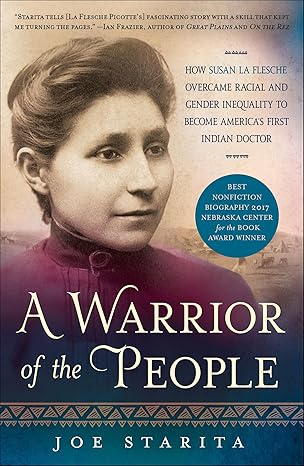
On March 14, 1889, Susan La Flesche received her medical degree becoming the first Native American doctor in U.S. history. This is the story of an Indian woman who effectively became the chief of an entrenched patriarchal tribe, the story of a woman who crashed through thick walls of ethnic, racial and gender prejudice, then spent the rest of her life using a unique bicultural identity to improve the lot of her people physically, emotionally, politically, and spiritually.
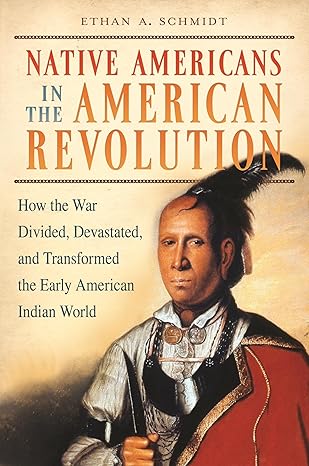
The American Revolution provided the opportunity to continue displacing Native Americans. This book provides an account of the role of Native Americans in the Revolution's outbreak, progress, and conclusion. It provides full coverage of the Revolution's effects on Native Americans, and details how Native Americans were critical to the Revolution's outbreak, its progress, and its conclusion.
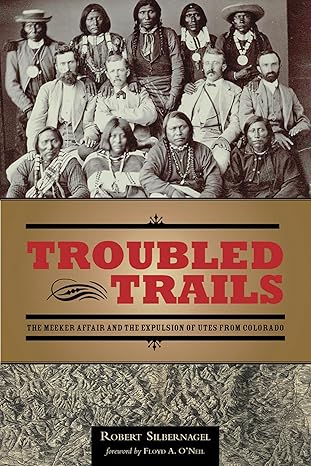
Robert Silbernagel casts new light on the story of the Meeker Affair. Using details from historical interview transcripts and newspaper articles, he reveals the personalities of the major characters—both Indian and non-Indian. He tells the story from many perspectives, including that of Indian Agent Nathan Meeker; the U.S. military; Nicaagat, a leader of the White River Utes; and Josephine Meeker, Nathan Meeker’s daughter, who was held hostage by the Utes. Silbernagel took great pains to tell a complete story, even following on horseback the trail taken by the Utes. As a result, his book paints a multifaceted picture of what took place and, most importantly, his portrayal brings the Ute side of the story into focus.
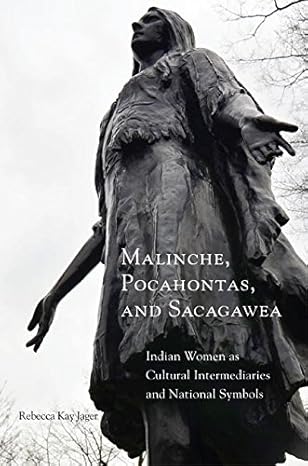
The first Europeans to arrive in North America's various regions relied on Native women to help them navigate unfamiliar customs and places. This study of three well-known and legendary female cultural intermediaries, Malinche, Pocahontas, and Sacagawea, examines their initial contact with Euro-Americans, their negotiation of multinational frontiers, and their symbolic representation over time.

Scholars and activists Roxanne Dunbar-Ortiz and Dina Gilio-Whitaker tackle a wide range of myths about Native American culture and history that have misinformed generations. Tracing how these ideas evolved, and drawing from history, the authors disrupt long-held and enduring myths such as: 'Columbus Discovered America'; 'Thanksgiving Proves the Indians Welcomed Pilgrims'; and 'Indians Are Naturally Predisposed to Alcohol.' Each chapter deftly shows how these myths are rooted in the fears and prejudice of European settlers and in the larger political agendas of a settler state aimed at acquiring Indigenous land
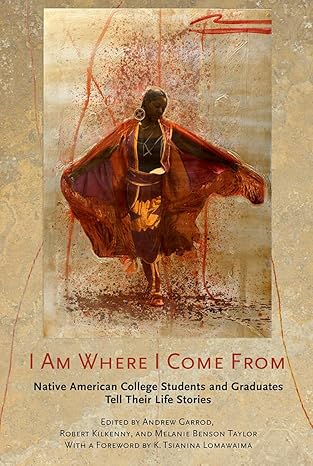
This book presents the autobiographies of thirteen Native American undergraduates and graduates of Dartmouth College, ten of them current and recent students. The autobiographies contained in the book explore issues of native identity, adjustment to the college environment, cultural and familial influences, and academic and career aspirations.

"With rigorous original scholarship and creative narration, Lisa Brooks recovers a complex picture of war, captivity, and Native resistance during the "First Indian War" (later named King Philip's War) by relaying the stories of Weetamoo, a female Wampanoag leader, and James Printer, a Nipmuc scholar, whose stories converge in the captivity of Mary Rowlandson. Through both a narrow focus on Weetamoo, Printer, and their network of relations, and a far broader scope that includes vast Indigenous geographies, Brooks leads us to a new understanding of the history of colonial New England and of American origins.” - womenandchildrenfirst.com
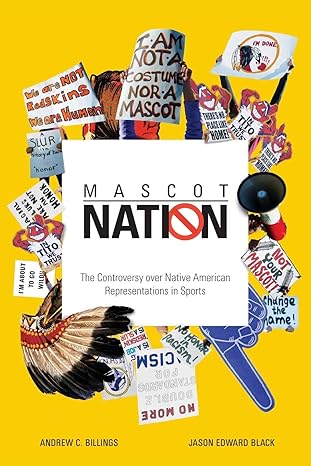
The issue of Native American mascots in sports raises passions but also a raft of often-unasked questions. Which voices get a hearing in an argument? What meanings do we ascribe to mascots? Who do these Indians and warriors really represent? Andrew C. Billings and Jason Edward Black go beyond the media bluster to reassess the mascot controversy. The result is a book that merges critical-cultural analysis with qualitative data to offer an innovative approach to understanding the camps and fault lines on each side of the issue, the stakes in mascot debates, whether common ground can exist and, if so, how we might find it.
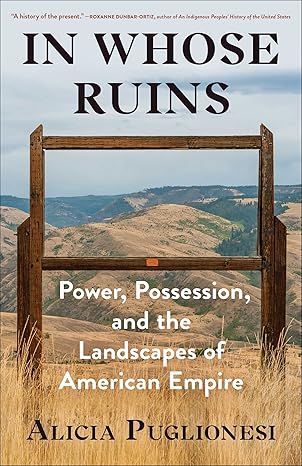
Popular narratives of American history conceal as much as they reveal, presenting a national identity based on harvesting treasures that lay in wait for European colonization. In Whose Ruins tells another story: winding through the US landscape, from Native American earthworks in West Virginia to the Manhattan Project in New Mexico, this history is a tour of sites that were mined for an empire’s power. Showing the hidden costs of ruthless economic growth—particularly to Indigenous people—this book illuminates the myth-making intimately tied to place.
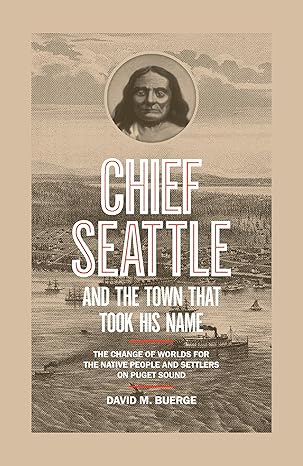
This is the first thorough historical account of Chief Seattle and his times—the story of a half-century of tremendous flux, turmoil, and violence, during which a native American war leader became an advocate for peace and strove to create a successful hybrid racial community. Included in this account are the treaty signings that would remove the natives from their historic lands, the roles of such figures as Governor Isaac Stevens, Chiefs Leschi and Patkanim, the Battle at Seattle that threatened the existence of the settlement, and the controversial Chief Seattle speech that haunts to this day the city that bears his name.
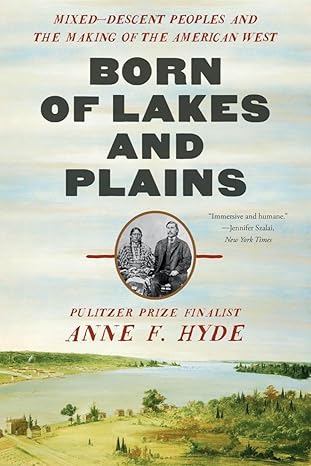
Born of Lakes and Plains follows five mixed-descent families whose lives intertwined major events: imperial battles over the fur trade; the first extensions of American authority west of the Appalachians; the ravages of imported disease; the violence of Indian removal; encroaching American settlement; and, following the Civil War, the disasters of Indian war, reservations policy, and allotment. During the pivotal nineteenth century, mixed-descent people who had once occupied a middle ground became a racial problem drawing hostility from all sides. Their identities were challenged and their traditions by the Indian schools established to erase Native ways.
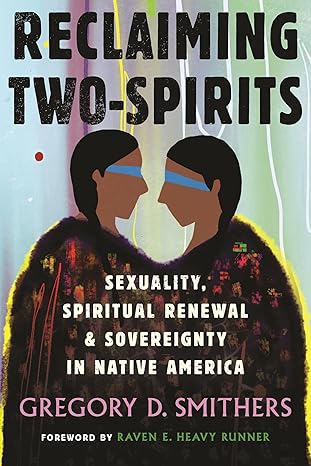
Reclaiming Two-Spirits decolonizes the history of gender and sexuality in Native North America. It honors the generations of Indigenous people who had the foresight to take essential aspects of their cultural life and spiritual beliefs underground in order to save them. Reclaiming Two-Spirits spans the centuries from Spanish invasion to the present, tracing massacres and inquisitions and revealing how the authors of colonialism’s written archives used language to both denigrate and erase Two-Spirit people from history.
Click here to see some of the new materials that we have recently added to the the FRCC Westminster Library Collection.
| Contact Us | |
|---|---|
|
|
|
|
303.404.5504 |
|